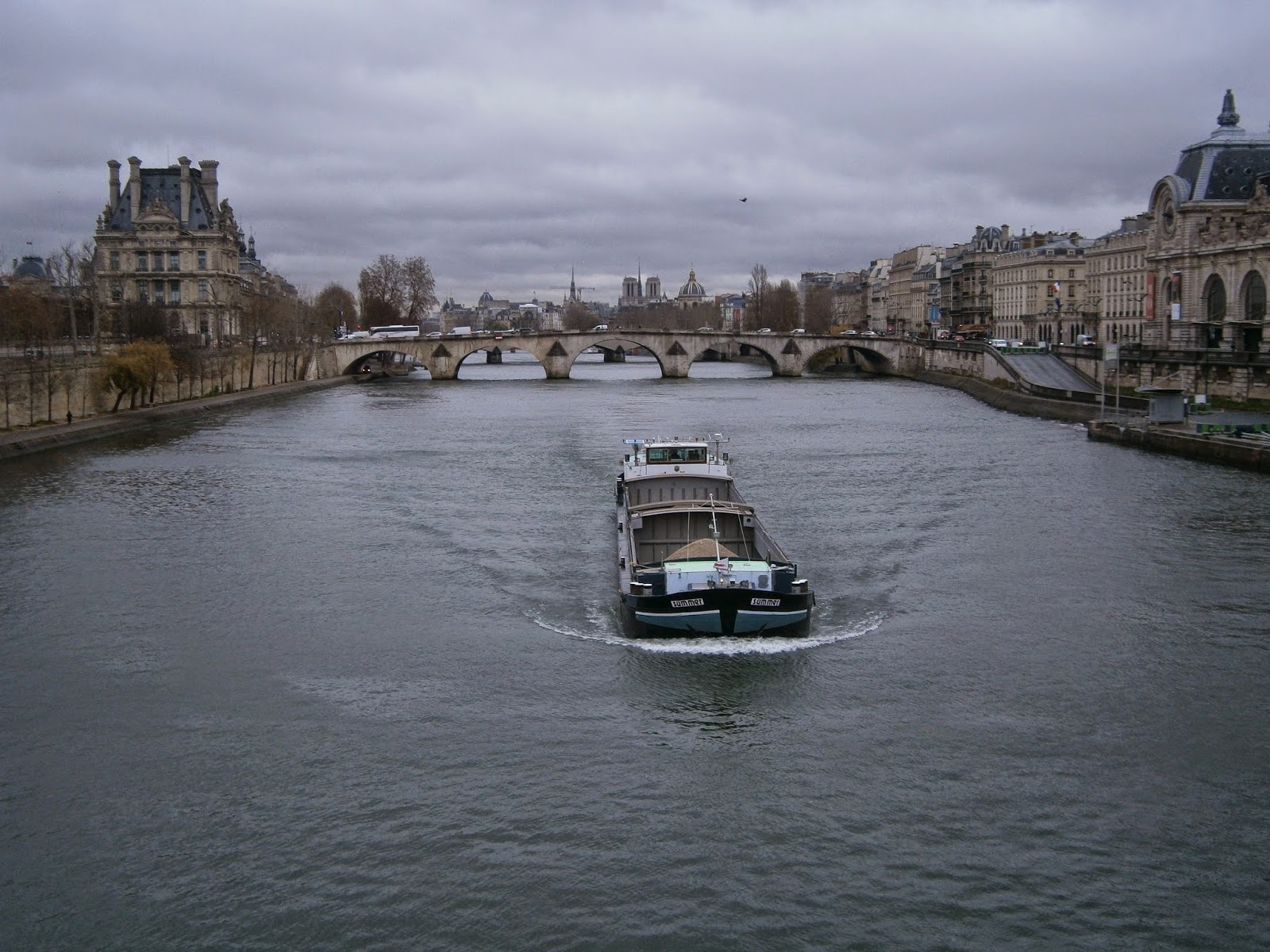Paris. If I had
known, I probably wouldn’t have gone. I don’t
mean the grey, wet, and very cold weather I endured there. I had warm clothes, warm and comfortable
boots, my beret, gloves, and an umbrella.
I was invincible.
I’m talking about the sudden and unexpected dip in my income
that came about soon after I had already taken the funds out of my retirement
account and booked. There could be no
refund. It would be ridiculous not to go,
n’est-ce-pas?
I’d never done an organized tour before – not even a day
trip. This tour was with Road Scholar
and was called “Independent Paris: People, Places, Culture”. Would we be led around like ignorant sheep? Would the others in the group be good
company? They said
the energy level required was fairly high and there would be a considerable
amount of walking. Would I be able to
keep up?
None of it was a problem.
The group was varied, I was fit, and the tour was well conceived and well
executed. Brigitte Young our group
leader was very good, and James M’Kenzie-Hall, our lecturer/guide was
intelligent, knowledgeable, well spoken, and witty (in the best British
tradition).
I came by the Spanish/French fast train, to the Gare de Lyon
and arrived at the hotel (Le Patio de Sant Antoine) in plenty of time to unpack
and then go to the welcome orientation at 5:30.
During our introductions there was one husband who said he had come
because his wife made him, and indeed, I believe he managed not to enjoy
himself. In Paris! Of the sixteen people in our group, six were
married couples and the rest of us had come alone.
We would have lectures at our meeting room in the hotel and then
off we would go to see the sights and visit museums. While out and about, we would be connected to
our guide by a wireless audio guide system, each of us having an earphone
wrapped around one ear. This allowed
James to continue his lectures as we walked and eliminated the need for the
leader to wave an umbrella or flag in order to keep us together.
The first morning we had a coach all to ourselves and were
driven around for an overview of Paris with one stop for a photo opportunity at
the Eiffel Tower. When that tour
finished the driver had no choice but to pull up to stop on the left of a busy one-way
street, leaving us to get off into traffic.
That was our first adventure.
The next evening we enjoyed a boat ride up and down the
Seine, seeing Notre Dame, the Eiffel Tower, and what there was to see of the
left and right bank of Paris lit up at night.
It was freezing cold and very beautiful.
My photos all turned out to be rubbish.
Taking decent night photos from a moving vehicle can be my challenge for
2015.
One day Brigitte took us to a neighborhood open-air food
market not far from our hotel, followed by a charcuterie lunch at a nearby wine
bar. The cheese and sausage and the wine
were all excellent, but what I enjoyed the most was the informal, cozy environment that surrounded us in that bar full of regulars – something we (or
at least I) would probably not have experienced on our own. To get to the toilet in this cozy
neighborhood joint you exited to the small courtyard at the back and found the
door to a tiny room. The good thing was
that the door could be locked. The
toilet, so to speak, consisted of a hole in the ground with small platforms
where you were to put your feet. Having
experienced one of these a few years ago in a bar near Avignon, I knew to step
back before I pulled on the chain to flush, and thus I did not get water all
over my shoes. The other good thing was
that there WAS toilet paper. This was our
second adventure.
 |
| At the market |
We explored the Sainte-Chapelle and Notre Dame, Latin
Quarter, the Marais, the Palais Royal (where Colette used to live), the Musée d’Orsay, Musée de l’Orangerie, and
Montmartre. I did the unthinkable and skipped the visit to the Louvre. I went on my own to revisit
the Pere Lachaise Cemetery and paid my respects to Colette, one of my favorite
authors. I meant also to visit Chopin, Edith
Piaf, and Oscar Wilde, but they kept hiding from me and it suddenly became
late, and it’s a big cemetery, and I didn’t want to risk being locked in at 5:30 and having to spend the
night with my idols. With Elaine (with whom I shared an interest in
Art Nouveau and good food) I went to the Musée Decoratif, the Tuileries Gardens, the Champs-Elysées and the Christmas
market, and ate at Le Procope and Le Grand Colbert. I also had lunch with most of the group at
the beautiful restaurant in the Musée
d’Orsay.
 |
| Pere Lachaise Cemetery |
 |
| This little light of mine... |
 |
| The Palais Royale where Colette lived for many years |
I had one errand to do and
took advantage of the fact that you can easily obtain Chanuka candles in France
and bought me a box while wandering solo through the streets in the Marais. It
was one those small blue boxes that I've known all my life, however, back home when I
opened it for the first night, I found that rather than the assorted colors
I've always had, these were all white. That wasn't a problem; white candles
look nice. Never mind that these dripped like all hell and smelled funny. Then on
the eighth night I discovered that the box was one candle short.
 |
| Playing football behind the Louvre |





































